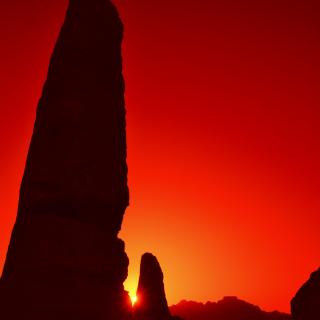Esteban, C.
Bibliographical reference
Mediterranean Archaeology and Archaeometry, Vol. 18, No 4, (2018), pp. 33-41
Advertised on:
9
2018
Refereed citations
0
Description
Along the first millennium BCE and up to the beginning of the Roman conquest at the end of III century
BCE, the southeast part of the Iberian Peninsula was colonized by Phoenicians, Greeks and Punics. All these
cultures influenced the religious and funereal world of the indigenous peoples. Tartessians and Iberians
were the main Protohistoric cultures product of such external influences in this geographical area. In this
paper, I review the main results of archaeoastronomical works I have carried out in Protohistoric
archaeological sites of the south and southeast of the Iberian Peninsula. These works give pieces of
information that provide a diachronic view of the role of astronomy in the ritual during the first millennium
BCE. The Tartessian/Phoenician sanctuaries of the Guadalquivir Valley show evidences that the cult to Baal
and Astarte may have rituals related to the sun at solstices and Venus at its southernmost setting,
respectively. Solstices seem also to be present in the ritual held in coastal sanctuaries of the Andalusian coast
and in other early sanctuaries of the Iberian Culture. A change in the astronomical elements of the ritual
seems to appear around the IV century BCE. Many Iberian sanctuaries dated at or after that century show
equinoctial orientations and/or markers on topogaphic features of the horizon. Iberian cave-sanctuaries tend
to be oriented westerly and some of them show orientatons toward the sunset at equinox or solstices.
Striking illumination phenomena have been found in some cases, they could have been used as elements in
the ritual or even to recreate a perceptive experience of the divine among the Iberians.
Related projects

Archaeoastronomy
The main objective of this project is to study the importance of astronomy as a fundamental part of human culture and civilization from Paleolithic to the present day. Our interest is mainly devoted to the people of the ancient Mediterranean cultures from the Atlantic to the Middle East, with a special dedication to Spain, its geographical
Juan Antonio
Belmonte Avilés